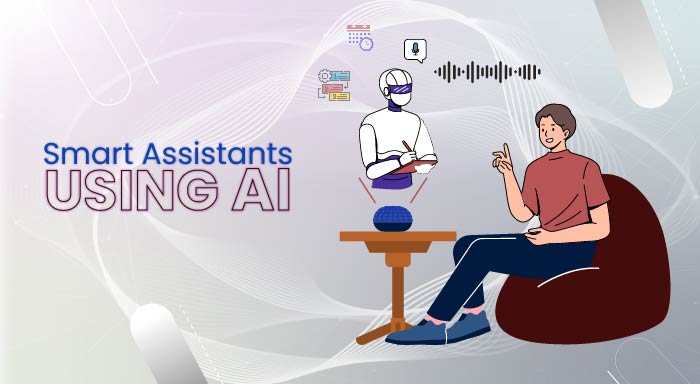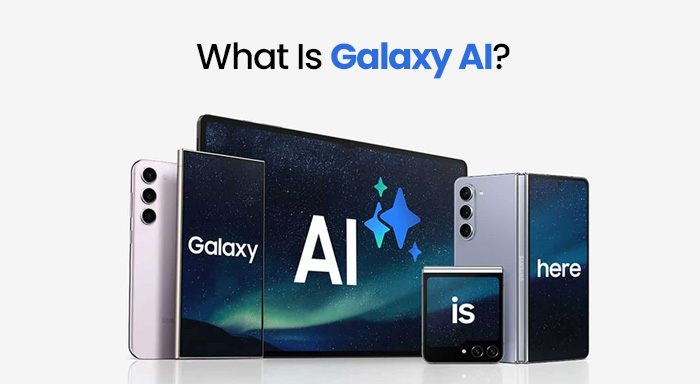Introduction
The pace of events today is very rapid. As a result, the feeling of needing to systematize daily activities and timetables has grown rather burdensome. It is during these times of changes that smart assistants, which have been designed using artificial intelligence, have gradually begun to be strong aids in making lives easy, enabling one to sort out everyday activities with much ease. Be it organizing one's calendar or managing shopping lists, AI-powered assistants like Siri, Google Assistant, and Alexa will utterly change the way humans can connect to technology.
As AI smart assistants help to facilitate everyday tasks and manage schedules, several benefits have appeared in different spheres of our existence. As we reflect on the prospect of Soppping smart Assistants that are bun by artificial intelligence to cut down work and make it easier the following article looks into how these smart Assistants have brought more advantages to our lives than inconveniences in terms of efficiency.
The Rise Of AI-Powered Smart Assistants.
More specifically, in the last decade, we had the phenomenon of smart assistants that are backed up by artificial intelligence. These intelligent systems employ the concept of machine learning and other features such as natural language understanding and voice recognition in their interpretation of commands given by the user about some tasks to execute. So often as you employ them, the more they find out about your preferences – thus they get super tailored and consequently time-saving.
From greeting someone and enquiring about the weather to waking up to an alarm, to managing appointments and typing an email, all these are considered vital activities of our day-to-day life. We see Amazon Alexa, Google Assistant, and Apple’s Siri today which has already become a part of millions of homes all around the world.
Core Functions of AI Assistants
AI smart assistants are designed in such a way that they make life easy by simplifying some tasks with the help of voice or text commands. These assistants go through usability testing to ensure efficiency. Some of the usages of AI smart assistants are as follows:
- Voice Commands: Using AI Virtual assistants, users can do many things hands-free, from setting reminders to calling.
- Automation of Tasks: Smart Assistants save time and energy that is used for various tasks related to routine activities by automating such things as turning lights off and playing music.
- Some of the other basics that can be executed by AI-powered smart assistants are Scheduling Management: Your virtual assistant will update calendars, remind you when it is time for a meeting, or create lists of things to do.
- Information Retrieval: This device, using the internet, will be able to answer general knowledge questions, provide updates about weather conditions, and even give news about road traffic.
- Integration with Other Devices: Other features, such as lighting, thermostat settings, and security, will also be integrated with smart assistants using voice for many other functions.
Let us delve deeper into how these features have eased daily tasks and schedule management.
AI Assistants for Scheduling and Calendar Management
Probably the biggest hurdle in today's world is dealing with multiple appointments, meetings, and deadlines. Smart assistants replaced the way we used to plan and organize such time-bound activities. Now, with more intelligence because of integration with AI, they would not just remind you about your appointments but participate in the planning of your time.
1. Seamless Calendar Integration
They will integrate with your calendar apps like Google Calendar and Apple's iCalendar, and thus update your meetings, appointments, and events automatically. So, due to this vast integration, they can remind you according to your daily schedule. For instance, Google Assistant may notify you when to leave so that you can attend a certain appointment, considering the current traffic and time taken.
2. Smart Reminders
Let it remind you to do something in a specific place or at any particular time, and with AI-powered assistants, one can't ever forget. One of the most common examples is "Remind me to call John when I get to my house," and then your assistant does just that through your location.
3. Natural Language Processing for Task Management
AI smart assistants use NLP to understand complex, context-based commands. For instance, by utilizing AI voice commands, users can easily set events or reminders, like saying “Schedule a meeting with Sarah next Tuesday at 10 a.m.”
4. Time Zone Management
This helps the person who works with international teams or someone who is always on the go to deal with multiple appointments in different time zones. They automatically change the meeting time to that person's time zone or those people you will meet, eliminating the possibility of appointment conflicts.
Smart Assistants and Automation of Tasks
Besides scheduling, smart assistants have made our daily accomplishments much easier. Because of automating the usual activities, they save time and effort for users to attend to other more important things.
1. Hands-Free Assistance
Another major plus is that with smart assistants, a lot of tasks can be done hands-free. Be it sending text messages, making calls, or reading emails out loud, using AI assistants allows you to perform multitasking without actually touching the devices. Such features become so handy while driving, cooking, or even working.
For example, Google Assistant sends a message by commanding with your voice, and you will be able to communicate without stopping your activities. Amazon's Alexa, on the other hand, creates lists of groceries or sets reminders when one is in the kitchen or otherwise on the go.
2. Smart Home Control Automation
AI assistants also play a role in home automation. Through their interconnections to smart home devices like, but not limited to, lights, appliances, and thermostats, AI assistants enable control over your surroundings with your voice. For example, you say, "Alexa, turn off the living room lights," or "Google, set the thermostat to 72 degrees.
Not only can smart assistants operate devices individually, but they can also be used to develop routines to run multiple all at once. With a simple command like "Goodnight," Alexa can turn the lights off, lock the doors, and lower the temperature of the thermostat all at once.
3. Smart Home Task Suggestions
The more you use your AI assistant, the more it gets to know your habits and behaviors, which allows the personalization of different activities. For example, if you have to set an alarm every morning at 6 a.m., then your assistant will start prompting you after a while with "Would you like to set your alarm for 6 a.m. again?" This kind of predictive capability helps minimize the time one needs to take to repeat similar activities.
Improving Productivity through AI Assistants
From simple task management to setting appointments, AI-powered smart assistants have grown to include devices like Windows time trackers that could even further enhance productivity at work and beyond the workplace.
1. Voice-activated note-taking
One can always ask Siri or Google Assistant during meetings or brainstorming sessions to take notes for one. Saying, "Create action items, ideas, and key points in the note-taking app of preference," will save them there. This saves the user from having to multitask between the conversation and note-taking.
2. Email Management
They also help you tame your inbox by reading emails aloud, archiving or deleting messages, and even composing responses via voice commands. A Google Assistant feature called "Smart Reply" suggests quick, contextually appropriate responses sent via tap or voice command.
3. Time Management
AI-powered smart assistants take it a notch further by prioritizing tasks through organizing the to-do list and making suggestions on how best to manage your time. They do this by looking at your schedule and what all you have on it, so that they can, therefore, remind you to take breaks, focus on priority items, or even suggest more effective ways to finish any particular task.
4. Integration with Collaboration Tools
Most virtual assistants these days integrate with workplace collaboration tools like Slack, Microsoft Teams, and Zoom. Now, it's quite easy to schedule meetings, message your colleagues, or join video conferencing using just your voice. Capabilities like writer tools and AI-powered smart assistants cash in on their ability to accelerate work processes and enable better team collaboration. In customer-facing environments, integrating AI contact center software allows businesses to streamline communication, automate responses, and enhance customer satisfaction through intelligent, real-time support.
Smart Assistants and AI: What Lies Ahead
If to look at the future every few years, new models of smart assistants will be created that will be smarter. Subsequent enhancement could be things like context, or even more customization, or even getting more into the platforms and devices. Similarly, integrating a Squarespace chatbot into your website can automate customer interactions, providing real-time responses and streamlining user queries. For example, AI assistants like ChatGpt-4o can make auto-suggestions or appointments based on previous utilization, and time, or may auto-execute even more composite operations.
Voice recognition as well as natural language processing will be significantly higher to the level, where smart assistants, themselves, can engage in dialogues of even much greater importance in a highly perfect sounding super-human manner. Their further training on the aspects of users' experience and their interactions suggests that the provision of much more personal help with the matters arising in day-to-day life is easier than before.
Conclusion
Indeed, the use of smart assistants powered by artificial intelligence has been useful in tackling everyday activities and tasks. These assistants attempt to make life a tad easier; from scheduling your calendar to the consistent chores you can have less of because you are an assistant now.
Since AI will continue to evolve, we should expect much more creative and user-friendly features than what we have experienced up until now, so even more change can be expected in the way we interact with technology and manage our time. Whether it is automating your schedule or home, smart assistants promise a glimpse into what the future of AI-powered ease will be like.
Related Posts:
How to Bypass Character AI NSFW Filter in 2025?
Zoho Workplace Elevates Team Communication with Zoho Cliq 6.0



